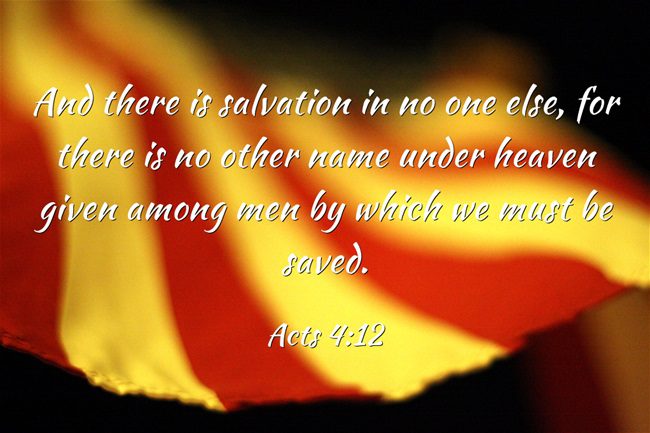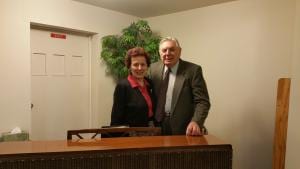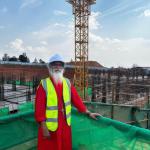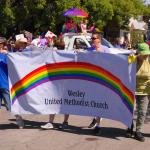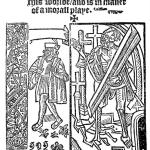Here is a Bible study, commentary, and summary of Acts chapter four.
Acts 4:3-4 “And they arrested them and put them in custody until the next day, for it was already evening. But many of those who had heard the word believed, and the number of the men came to about five thousand.”
Once again, the religious leaders were “greatly annoyed because they were teaching the people and proclaiming in Jesus the resurrection from the dead” (Acts 4:2), even though the real reason was they were jealous. The very next day the Jewish leaders ask the, “By what power or by what name did you do this” (Acts 4:7). Peter asked them why they were being examined for doing a good thing in the healing of the lame man (Act 3). Peter plainly tells everyone there, “Let it be known to all of you and to all the people of Israel that by the name of Jesus Christ of Nazareth, whom you crucified, whom God raised from the dead—by him this man is standing before you well” (Acts 4:10). Of course there was not much the Jews could say. By the time they apostles had been arrested, it was too late anyway because many who heard the word believed and that was about five thousand men and they all knew, “there is salvation in no one else, for there is no other name under heaven given among men by which we must be saved” (Acts 4:12).
What was the primary reason they arrested the apostles?
What could the Jews say about their being arrested because of doing a good deed?
What did the Jews mean by “what power or by what name did you do this?”
Acts 4:13 “Now when they saw the boldness of Peter and John, and perceived that they were uneducated, common men, they were astonished. And they recognized that they had been with Jesus.”
At first, they obviously recognized Peter and John as the same men that had seen with Jesus during His earthly ministry. This means that they must have seen and heard Jesus too, and as such, they must have seen some of the miracles that He did. There was nothing wrong with their memories, but what they couldn’t grasp was the boldness of Peter and John. The disciples that they saw with Jesus were hardly recognizable to the ones they see now. Seeing and hearing the same kind of preaching Jesus did, simply astonished them. That was the very same boldness with which Jesus preached, and even though they deemed them “uneducated,” yes, they probably were, but they had also just graduated from the Master’s seminary of three years, where Jesus was their primary professor of the Word.
Why did you use the word “boldness?”
Do you think the Jews saw a great change in Peter and John’s lives?
Were they really “uneducated?”
Explain your answer.
Acts 4:19-20 “But Peter and John answered them, “Whether it is right in the sight of God to listen to you rather than to God, you must judge, for we cannot but speak of what we have seen and heard.”
Naturally, they tried to tell the apostles to stop preaching about Jesus and the resurrection, but they couldn’t stop. They had their command from Christ Himself (Matt 28:19-20; Acts 1:8). They would rather die than not preach it…in fact, some would, and in the end, all would except the Apostle John who died full of years and at a good, old age. When they released them, “they lifted their voices together to God,” (Acts 4:24), “Why did the Gentiles rage, and the peoples plot in vain. The kings of the earth set themselves, and the rulers were gathered together, against the Lord and against his Anointed” (Acts 4:25b-26), which was a quote from Psalm 2:1.
Why would they quote about the Gentiles plotting in vain?
Who was the “Anointed?”
Why couldn’t the apostles “help but speak” of what” they had “seen and heard?”
Acts 4:29-30 “And now, Lord, look upon their threats and grant to your servants to continue to speak your word with all boldness, while you stretch out your hand to heal, and signs and wonders are performed through the name of your holy servant Jesus.”
Right after they had just prayed for God to allow them to boldly proclaim the gospel, “the place in which they were gathered together was shaken, and they were all filled with the Holy Spirit and continued to speak the word of God with boldness” (Acts 4:31). Notice that they never prayed for the persecution to stop or for the disciples or apostles to get out of jail or to avoid lashes. The most important thing to them wasn’t to have their suffering stopped; it was for them to be able to boldly take the gospel to the ends of the earth.
What was the significance of the place being shaken?
Was the prayer of the church about getting revenge?
What was their primary prayer request for?
Why was “boldness” so important to the early church?
Acts 4:32-33 “Now the full number of those who believed were of one heart and soul, and no one said that any of the things that belonged to him was his own, but they had everything in common. And with great power the apostles were giving their testimony to the resurrection of the Lord Jesus, and great grace was upon them all.”
Because the church “had everything in common,” “There was not a needy person among them, for as many as were owners of lands or houses sold them and brought the proceeds of what was sold and laid it at the apostles’ feet, and it was distributed to each as any had need” (Acts 4:34-35). And finally, Barnabas “sold a field that belonged to him and brought the money and laid it at the apostles’ feet” (Acts 4:37). This wouldn’t be the last time we hear from Barnabas.
What does it mean that they were all “of one heart and soul?”
What was the source of their power in preaching?
What was this “grace” that “was upon them all?”
Did anyone ever command the church to sell their possessions to give to the church?
Are we to give up most or all of our possessions today?
If not, why not?
Summary
Great grace can be on you when you turn toward God and place your trust in Christ. Great peace have they who trust in Him. He is their peace; having made peace with God by Jesus very own life. That is the peace which abides forever, but until you are at peace with God, you will never have the peace of God. I suggest you read Romans 5 to see why I say these things.
Article by Jack Wellman
Jack Wellman is Pastor of the Mulvane Brethren Church in Mulvane Kansas. Jack is also the Senior Writer at What Christians Want To Know whose mission is to equip, encourage, and energize Christians and to address questions about the believer’s daily walk with God and the Bible. You can follow Jack on Google Plus or check out his book Teaching Children the Gospel available on Amazon.

